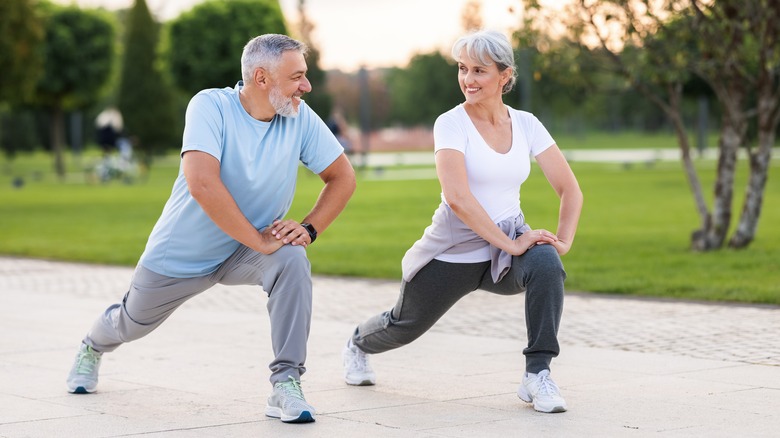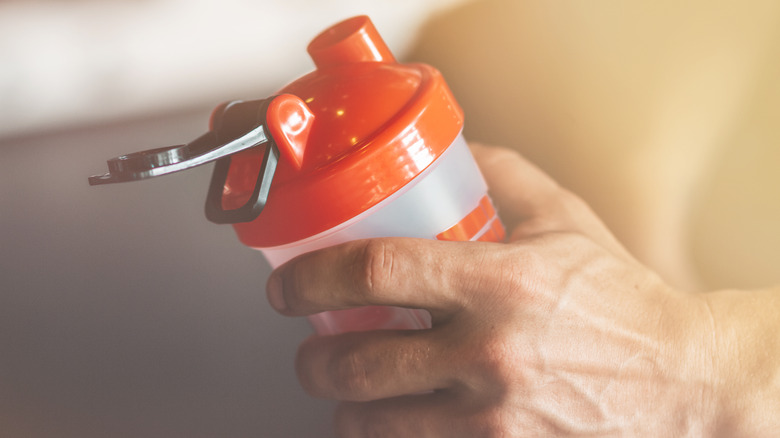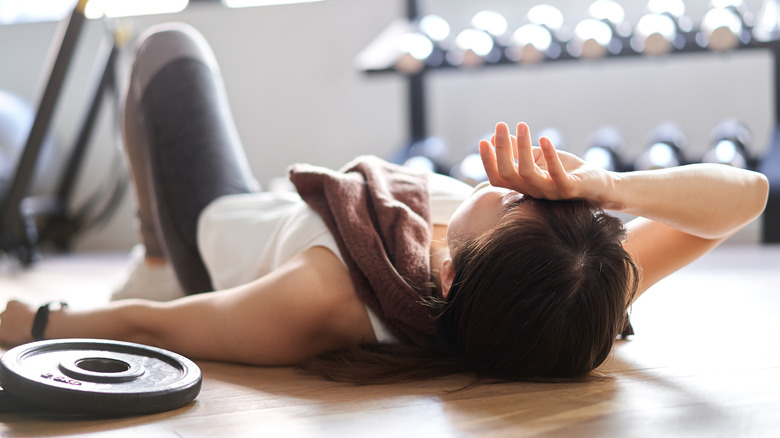The Bad Fitness Habits That Are Aging Your Body Faster
If fitness is your regular habit, you probably already know that exercise can help slow the aging process. Starting at age 25, your heart begins to lose its peak capacity to pump blood, according to Harvard Medical School. As your blood begins to get thicker in middle age, your heart has to work harder to pump the blood through your body. You also begin to lose muscle, which means any weight gain shows up as fat – by age 75, most people have twice as much fat as when they were young (per UC San Diego Health). That's why exercise is so important to prevent these declines. Harvard Medical School notes that endurance exercise helps reduce body fat, blood sugar, and LDL or "bad" cholesterol. It also helps keep your heart strong to move blood more efficiently through your body.
Resistance training also helps with age-related muscle loss, while weight-bearing exercise protects your bones, according to Time. As you age, your telomeres tend to decrease each year, which can significantly increase your mortality, but according to a 2017 study in Preventive Medicine, people who had a history of high physical activity had a nine-year advantage over their sedentary counterparts in terms of telomere length and cellular aging.
All that being said, you might not know that some of your exercise habits might be accelerating the aging process. Read on to see if you can curb these habits to protect your health.
What's in your pre-workout drink?
Sure, the beta-alanine in your pre-workout supplement can increase your time to muscular exhaustion, according to a 2012 study in Amino Acids. Creatine, on the other hand, can help with muscle performance and combat age-related muscle decline, according to WebMD. It could also possibly help control blood sugar and alleviate mental fatigue. Creatine might even help stave off neurological diseases such as Alzheimer's.
But before you take a chug, look at the amount of caffeine in your pre-workout supplement. Many of them will have up to 300 milligrams of caffeine per serving, according to WebMD. This can contribute to digestive issues or an irregular heartbeat, and caffeine can increase your blood pressure and cause insomnia (via Healthline).
Even though exercise can help lengthen your telomeres, as mentioned previously in that 2017 study in Preventive Medicine, the caffeine from your pre-workout drink might shorten the telomeres. A 2017 study in Nutrition and Metabolism measured the caffeine intake from more than 5,000 people and compared their DNA. For each 100-milligram increase of caffeine that people consumed in a day, their telomeres were significantly shorter.
Too much exercise and little recovery
Exercise might feel great, so it might be tempting to keep adding to your volume of training because you enjoy it. But according to the Evening Standard, too much exercise can generate too many free radicals that can accelerate aging. Too much cardio can also lower estrogen levels necessary to maintain bone health in women.
Exercise might help with stress reduction, but overtraining can add to your stress levels by boosting cortisol, according to University Health News. Cortisol is the stress hormone that can cause bone loss, an increase in belly fat, muscle breakdown, and sugar cravings. Keep an eye on signs of overtraining such as weight gain, sluggishness, sore bones or joints, or an inability to complete normal workouts.
A 2016 study in Medicine and Science in Sports and Exercise found that older athletes need more time for recovery and muscle repair than their younger counterparts. Medical News Today suggests taking a rest day at least every seven to 10 days to help repair muscles and replenish depleted energy. This could include an active recovery day such as yoga or walking.


